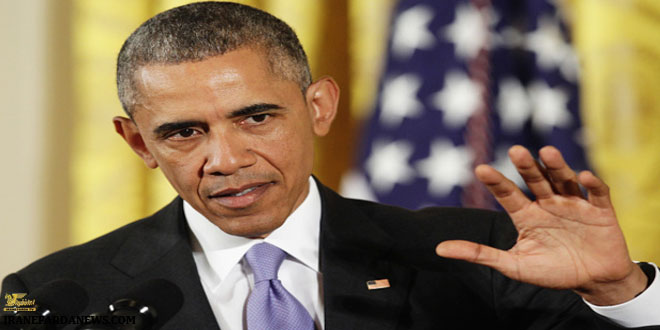by The Times Editorial BoardContact Reporter
President Obama was right to express satisfaction — and take some of the credit — for the successful implementation of the international agreement to place limitations on Iran’s nuclear activities and for the release of five Americans who were held by the Islamic Republic, including Washington Post reporter Jason Rezaian, who had been imprisoned for more than a year on trumped-up charges.
Iran’s compliance with key portions of the agreement, which was certified Saturday by the International Atomic Energy Agency, places significant obstacles in the way of its ability to develop nuclear weapons. As Obama noted, Iran has removed two-thirds of its centrifuges and shipped more than 98% of its enriched uranium out of the country. It has filled a reactor capable of producing plutonium with concrete.
In exchange for these steps, Iran will receive significant relief from international economic sanctions, including some imposed by the United States. That is an acceptable trade-off, despite the possibility that some of the tens of billions of dollars Iran will receive might be spent on actions that are destabilizing in the region, including possibly terrorism.
The administration also was right to agree to the deal in which, in exchange for the release of the Americans imprisoned in Iran, Obama agreed to pardon or commute the sentences of an Iranian and six dual citizens charged with violating sanctions against Iran. But if, as Obama said, the Americans were unjustly detained, the talks that led to their freedom were more like hostage negotiations than ordinary diplomacy.
And that points to a large reality about last weekend’s hopeful developments: Although moderate forces led by President Hassan Rouhani have succeeded in reducing Iran’s isolation, the country continues to be governed by a theocracy that countenances repression at home, intervenes in the affairs of its neighbors and flouts some of its obligations under international law.
Nor is it clear that the more moderate factions that prevailed upon Iran’s supreme leader to endorse the nuclear agreement will come out on top in future struggles with anti-Western hard-liners. That calls for a carefully calibrated policy on the part of the United States, one that is open to the possibility of better relations with Iran but vigilant about the need to counter its efforts to destabilize the Middle East. Despite its occasional overexuberance about the potential for progress, the Obama administration appears to recognize the complexity of the challenge.
On Sunday, the president pointed to the benefits of continuing contacts between two countries that remain “adversaries.” He noted the swift release of 10 U.S. sailors who had strayed into Iranian waters.
But Obama also chastised Iran for its “destabilizing behavior elsewhere, including its threats against Israel and our gulf partners, and its support for violent proxies in places like Syria and Yemen.” He noted that the U.S. continues to impose sanctions on Iran for its human rights violations, its support of terrorism and its ballistic missile program. On the last point, he announced new sanctions against 11 individuals and companies, to punish Iran for conducting tests prohibited under a United Nations Security Council resolution.
Some in Congress want to legislate additional sanctions authority and other measures directed at Iran, but they should move cautiously. Some proposals — including one that would require regular reporting by the administration of strategies to counter Iran’s “destabilizing activities” — are unobjectionable. Others, such as a declaration that “Iran does not have an inherent right to uranium enrichment,” would be provocative without having any practical effect on Iran’s ability to develop a nuclear weapon. (Iran insists that it has a right to enrich uranium for peaceful purposes under international law; the agreement it signed finesses that issue by referring to a right to use nuclear power for peaceful purposes.)
Finally, Obama’s careful engagement with Iran contrasts favorably with the reckless and bellicose line taken by some of those who would succeed him. For example, Sen. Ted Cruz pledges that on his first day as president he “will immediately repeal every word of President Obama’s dangerous Iran deal.” Sen. Marco Rubio, a bit less grandiosely, promises to “begin to undo the deal with Iran on Day One.” That sort of knee-jerk hostility is just as foolish as an uncritical acceptance of Iran’s assurances about its intentions.
 khalijefars News, Blogs, Art and Community
khalijefars News, Blogs, Art and Community









